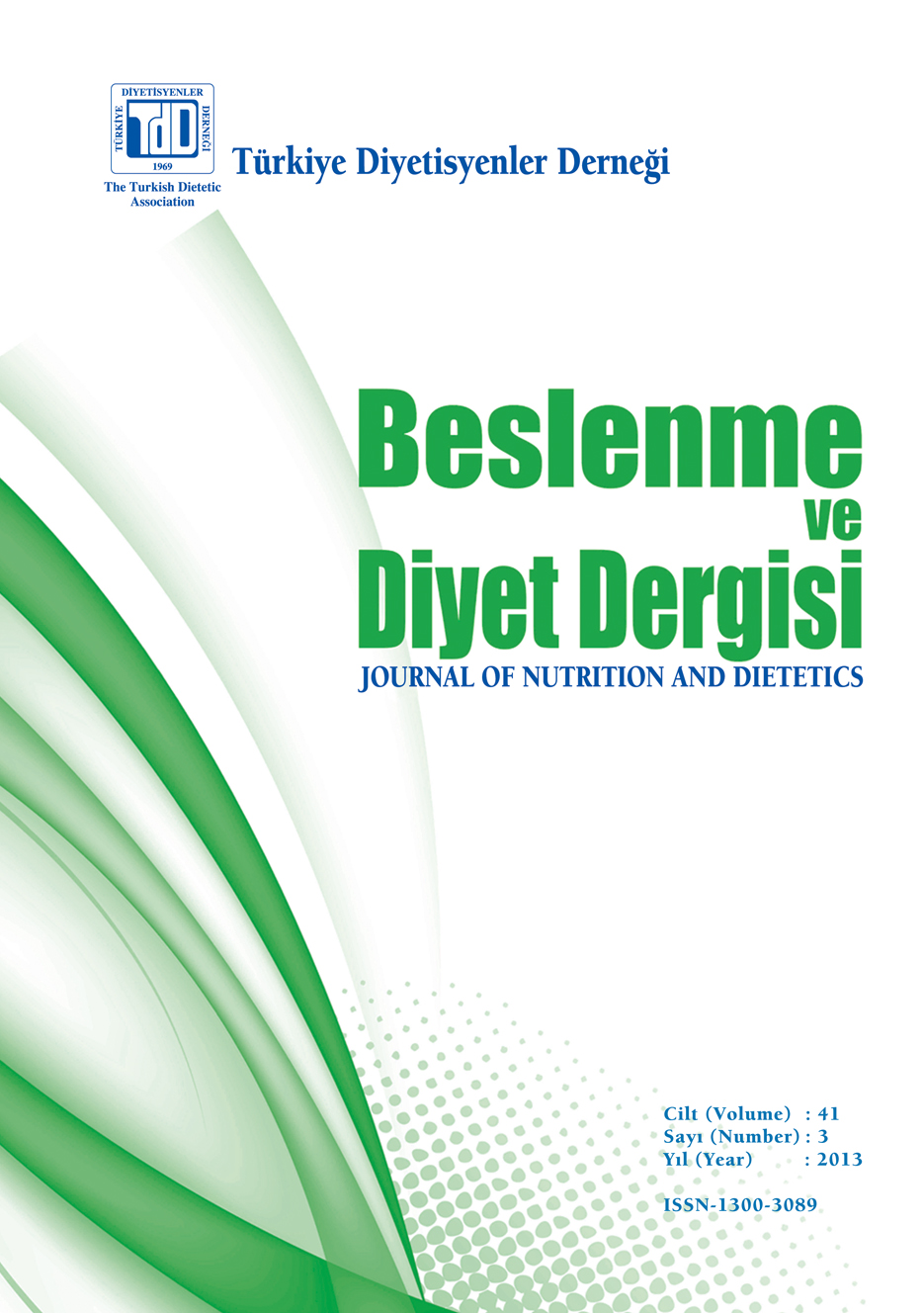The Assessment of Nutritional Status and Calcium Intake of Women aged 19- 40 Years Living in the Turkish Republic of Northern Cyprus
Keywords:
Nutritional status, calcium intake, TRNC, womenAbstract
Aim: This study was planned to assess nutritional status and to evaluate calcium intake of women living in the Turkish Republic of Northern Cyprus (TRNC). Subjects and Methods: The data were collected from 209 healthy women who applied to the Famagusta State Hospital laboratories between June 2010 and October 2010. Pregnant, lactating and chronically ill women were excluded in the study. A questionnaire was applied to determine general information, nutritional habits, food frequency, 24 hour recall, and attendance to exercise. The questionnaire and the anthropometric measurements were carried out by the researcher while blood tests were conducted by the health professionals working at the hospital. Energy and nutrient intake were analysed and statistical tests were applied by using computerized software programmes (BEBIS 6.1 student version and SPSS 16.0 respectively). Results: The contribution rate of dairy products in daily calcium intake of participants was found to be 56%. According to participants` daily nutrient intakes, the contribution rates of protein, carbohydrate and fat to total energy were determined to be 16.5±4.1%, 45.2±8.9% and 38.2±8.2% respectively. No significant difference was found between daily calcium (Ca) intake of subjects with different education levels (p>0.05). The calcium intake of women aged 19-30 years was found to be higher than the calcium intake of women aged 31-40 years (p<0.05). Mean daily Ca intake of the participants (531.7±166.4 mg) was observed to be lower than DRI values. A moderate positive correlation was found between calcium and fat intakes of participants. Out of total 67.4% of participants were rated as normal according to body mass index (BMI) classification. Conclusion: Daily Ca intake of women living in the TRNC was found to be less than the DRIs. Conclusion: Therefore, promoting of increase in consumption of dairy products which are the main source of Ca, is important for maintaining and improving women health.

